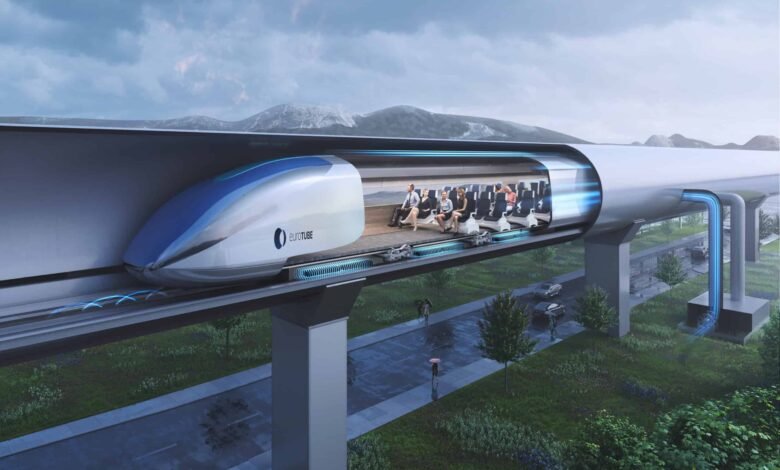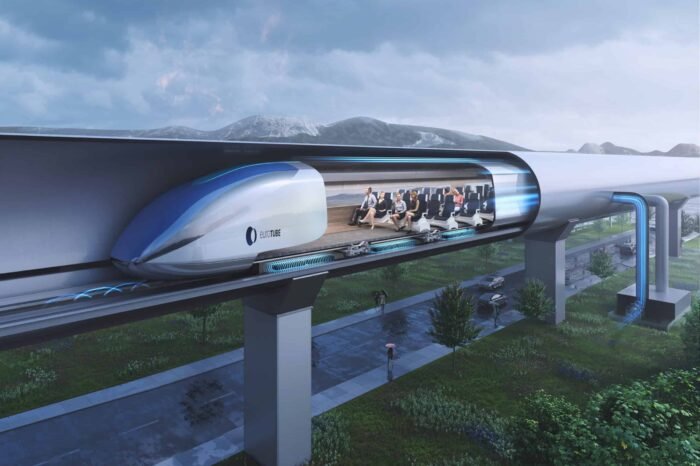Exciting Upcoming Construction Projects in 2025

Exciting Upcoming Construction Projects in 2025: Shaping the Future of Infrastructure
As we approach 2025, the construction industry is set to experience some monumental projects that will redefine urban landscapes and improve infrastructure across the globe. From cutting-edge skyscrapers to sustainable housing developments, these projects highlight the evolving trends and innovations in the construction sector. Let’s take a look at some of the most exciting and impactful construction projects set to launch in 2025.
1. The Hyperloop: Revolutionizing Transportation
One of the most ambitious transportation projects is the development of the Hyperloop, a high-speed transportation system that could radically change how people travel between cities. Proposed by Elon Musk and now being developed by several companies, the Hyperloop aims to transport passengers in pods through vacuum tubes at speeds exceeding 700 miles per hour. As testing phases continue, we can expect to see construction on the first commercial routes beginning in 2025. If successful, the Hyperloop could revolutionize intercity travel and reduce congestion, offering a faster and more sustainable alternative to traditional trains and flights.
2. The Green Building Boom: Sustainable Urban Developments
Sustainability is taking center stage in construction, with numerous eco-friendly projects planned for 2025. A key example is the continued development of green buildings and net-zero energy developments that prioritize energy efficiency, renewable resources, and sustainable materials. Cities around the world are embracing green building practices to combat climate change and improve quality of life.
For example, the Bauhaus Museum in Berlin is undergoing renovation to incorporate sustainable technologies while preserving its historical integrity. Similarly, large-scale urban developments like The Line in Saudi Arabia—a futuristic, carbon-neutral city—are pushing the boundaries of sustainable architecture. These projects not only reduce the carbon footprint of new buildings but also set a benchmark for future construction projects in terms of environmental responsibility.
3. The Evolution of Smart Cities
As technology continues to advance, the construction of smart cities is gaining momentum. These cities leverage cutting-edge technologies like Internet of Things (IoT), artificial intelligence (AI), and big data to optimize everything from transportation systems to energy use and waste management. In 2025, we’ll see the completion of several smart city projects around the world.
For instance, the NEOM city in Saudi Arabia is set to begin its phase of construction, with plans to become one of the world’s most advanced smart cities. It will integrate autonomous vehicles, AI-driven public services, and renewable energy sources to create an efficient and tech-enabled urban environment. Similar projects are being developed in places like Singapore, India, and the UAE, marking a transformative shift in how we design and build cities for the future.
4. High-Tech Skyscrapers: Pushing the Limits of Vertical Living
The skyscraper construction boom continues, with 2025 seeing the rise of some of the tallest and most innovative buildings ever designed. As cities become more densely populated, developers are focusing on building upwards. The Jeddah Tower in Saudi Arabia, which is set to become the tallest building in the world at over 1,000 meters, is scheduled for completion in 2025. This architectural marvel will feature luxury apartments, offices, and hotels, along with cutting-edge design that incorporates advanced engineering and sustainability features.
In addition to high-rise office buildings, skyscrapers designed for residential living are also on the rise. These urban towers are not just about height—they incorporate amenities that cater to modern lifestyles, such as green spaces, smart technology, and community-oriented facilities.
5. Revitalizing Infrastructure: Global Transport and Utility Projects
As urban populations continue to grow, there’s a significant need for infrastructure upgrades. Several major transport projects are scheduled to break ground or reach completion in 2025, including subway expansions, airport renovations, and high-speed rail systems.
One of the most notable projects is the Grand Paris Express, a massive 200-kilometer extension of the Paris Metro system that aims to reduce congestion and improve accessibility across the city. Similarly, the Changi Airport Terminal 5 expansion in Singapore is set to open in 2025, enhancing the airport’s capacity to accommodate the growing number of international travelers.
In the realm of utilities, there is a concerted effort to modernize water and energy systems to ensure sustainability. Projects such as the desalination plants in the Middle East and smart grid systems in Europe are setting new standards for utility infrastructure that prioritizes efficiency and sustainability.
6. Affordable Housing Developments
With housing shortages being a growing issue in many urban areas, 2025 will see the rise of large-scale affordable housing projects aimed at tackling this crisis. Governments and private developers are working together to create affordable, sustainable housing that accommodates the needs of growing populations.
In the U.S., the Affordable Housing Development Act is set to fund projects that will provide thousands of new housing units. Similarly, cities in the UK and Europe are focusing on mixed-use developments that integrate residential, commercial, and recreational spaces in an effort to create affordable communities with a high quality of life.
Conclusion: A Bold Vision for 2025
The construction projects slated for 2025 demonstrate the industry’s drive toward innovation, sustainability, and urban renewal. From futuristic transportation systems to smart cities and green buildings, the focus is clearly on creating infrastructure that can support growing populations while reducing the impact on the environment.
As these projects move from the drawing board to reality, we can expect a more connected, sustainable, and technologically advanced world—shaping the future of construction for generations to come.









